Indigenous Governance Database
NNI and Harvard Project Research
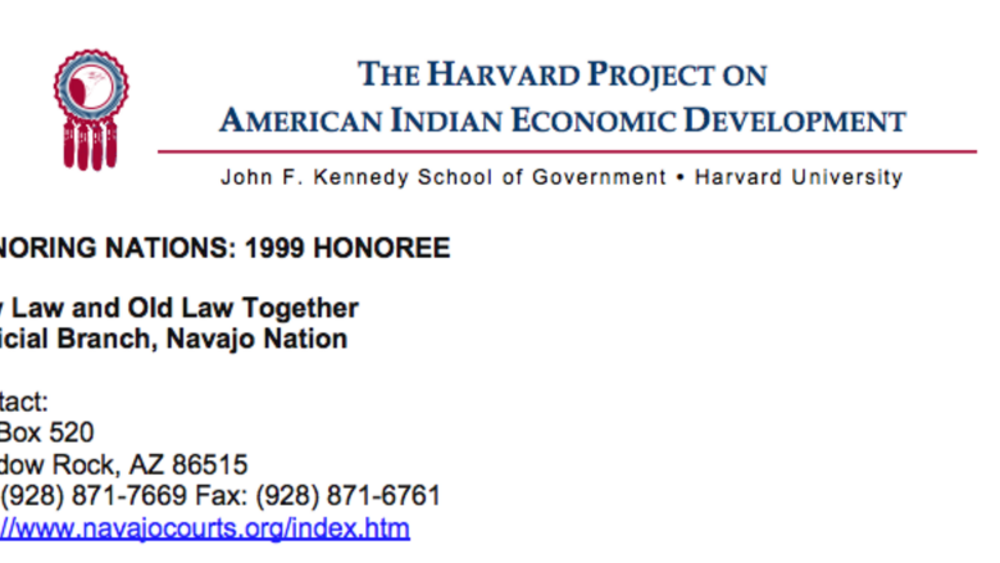
Navajo Nation Judicial Branch: New Law and Old Law Together
The Judicial Branch of the Navajo Nation seeks to revive and strengthen traditional common law while ensuring the efficacy of the Nation’s western-based court model adopted by the Nation. With over 250 Peacemakers among its seven court districts, the Judicial Branch utilizes traditional methods of…
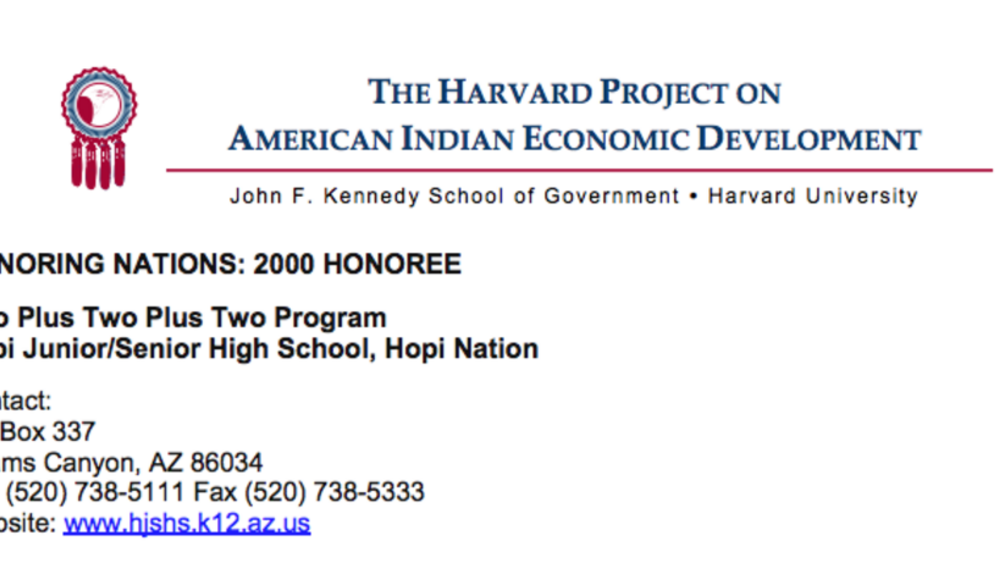
Hopi Jr./Sr. High: Two Plus Two Plus Two
Developed in 1997, the Two Plus Two Plus Two college transition program is a partnership between Hopi Junior/Senior High School, Northland Pioneer College, and Northern Arizona University. The program recruits junior and senior high school students to enroll in classes (including distance learning…
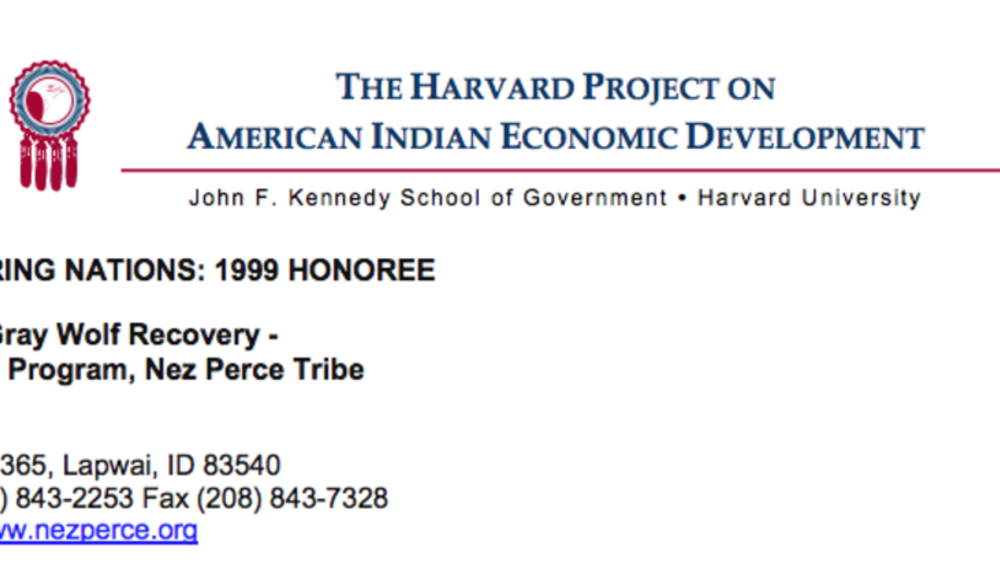
Idaho Gray Wolf Recovery Program (Nez Perce)
By developing a plan that includes monitoring, outreach, species management/control, and research, the Tribe is now leading the statewide recovery of the endangered Gray Wolf. The recovery program, which meets the guidelines developed by the US Fish and Wildlife Services, has resulted in a wolf…
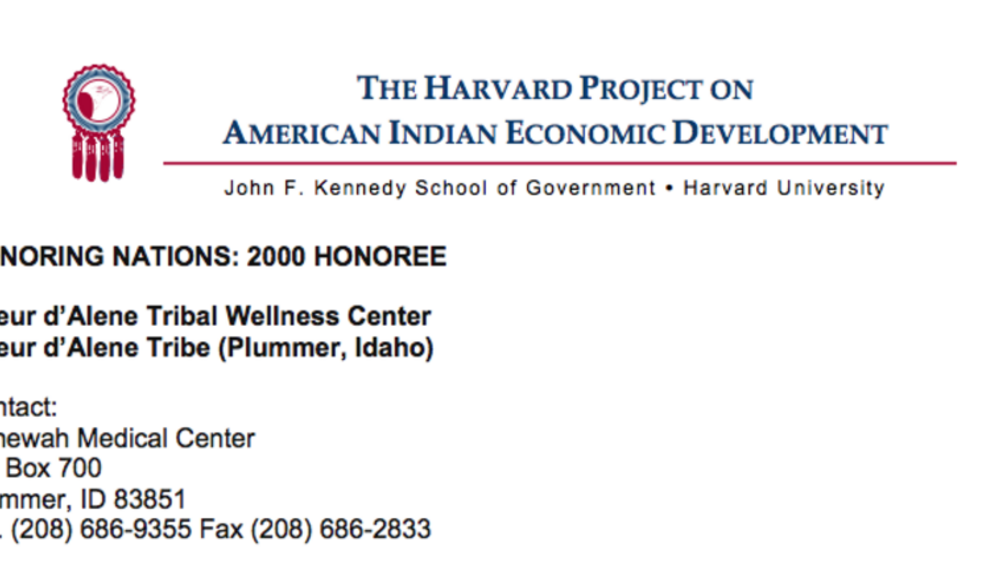
Coeur d'Alene Tribal Wellness Center
Created in 1998, the Wellness Center aims to promote healthy lifestyles by offering programs in fitness, aquatics, rehabilitation, childcare, and community health to 3,000 Indian and non-Indian clients. By employing the medicine wheel, or whole-life, approach to health and by focusing on…
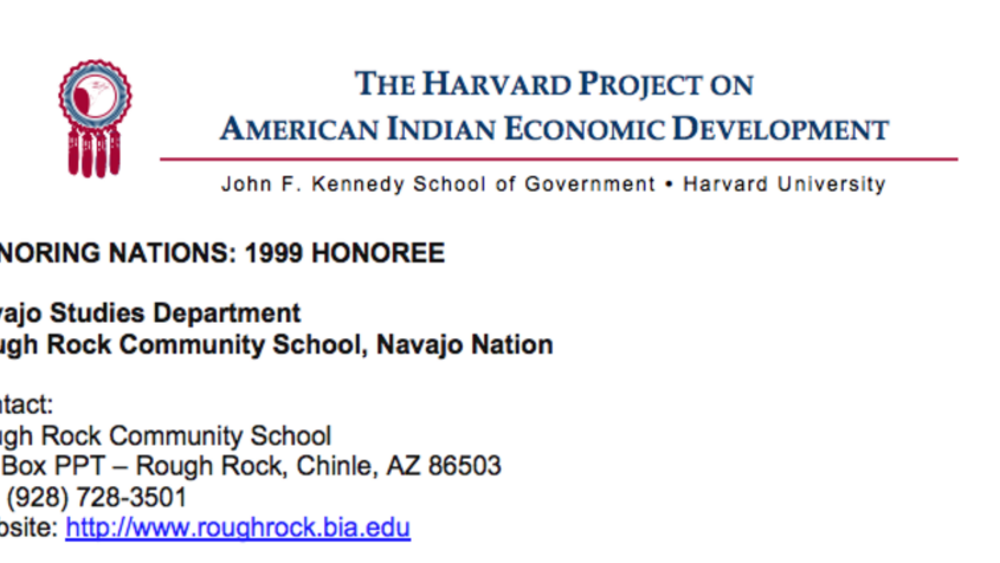
Navajo Studies Department
Created in 1966 as the first contract school in the country, Rough Rock is a Navajo-run institution that combines traditional Navajo learning with Western education. Its Navajo Studies curriculum, which addresses such subjects as culture, history, and language, was named by the Tribal Council as…
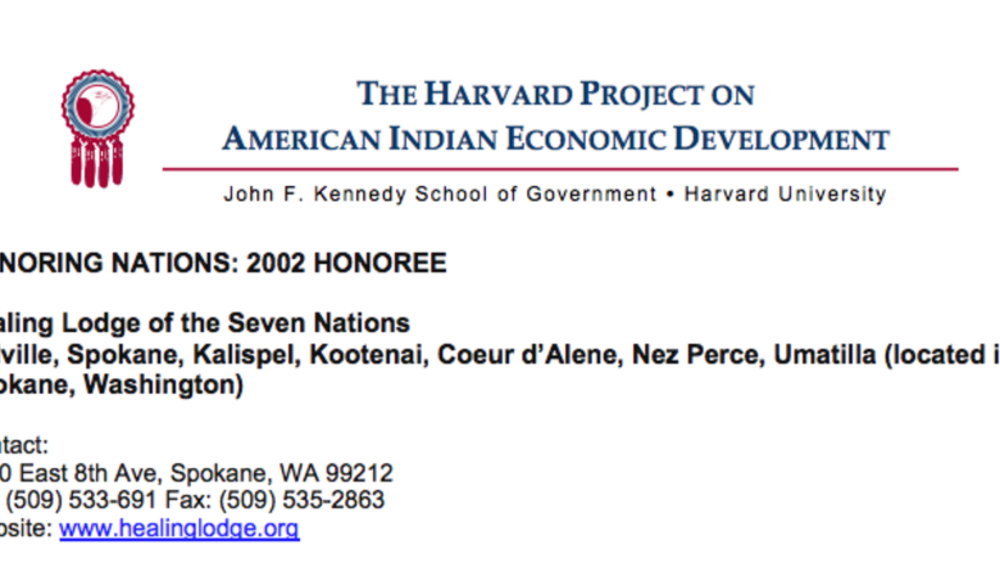
The Healing Lodge of the Seven Nations
Owned by a consortium of seven tribes, the Healing Lodge is a treatment center that helps Native American youth and their families heal from the trauma of alcohol and drug abuse. With a focus on blending culture and spirituality with mental health/chemical dependency treatment, services include in-…
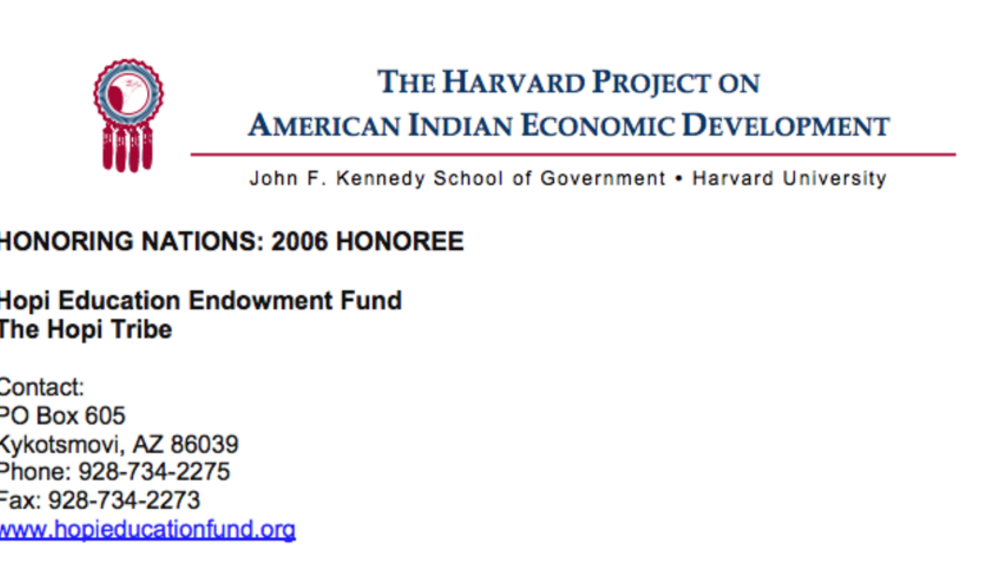
Hopi Education Endowment Fund
In a pursuit to ensure growth, protect assets, and meet the present and future educational needs of the Hopi Tribe, an ordinance establishing the Hopi Education Endowment Fund was approved. Taking advantage of IRS Code Section 7871 allows for tax deductible contributions made to the Tribe to…
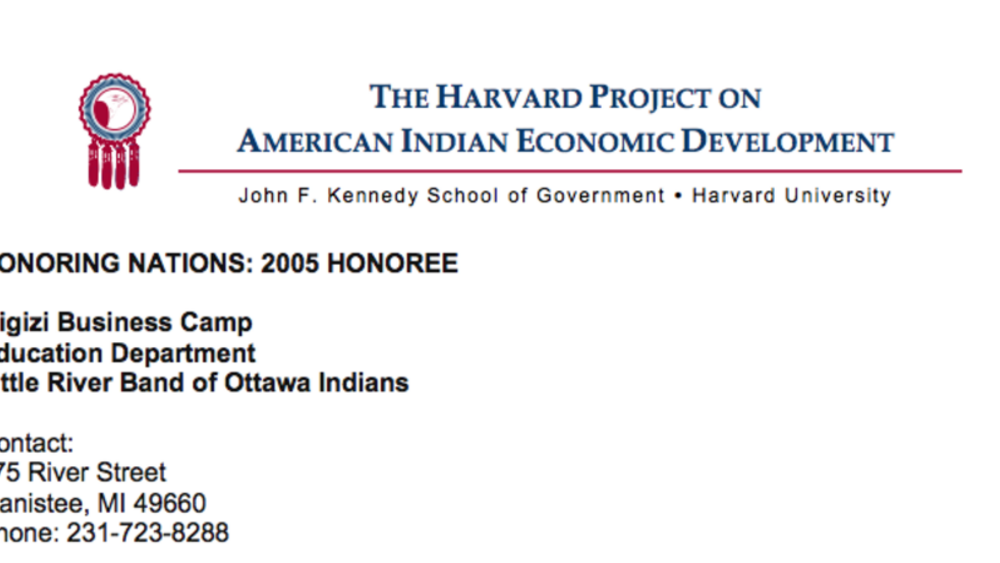
Migizi Business Camp (Little River Band)
In 1994, after 120 years of struggle, the Little River Band of Ottawa Indians finally re-obtained federal recognition. Ever since, tribal priorities included strengthening self-governance and the tribal economy. Their economic strategy followed two paths: the development of tribal enterprises and…
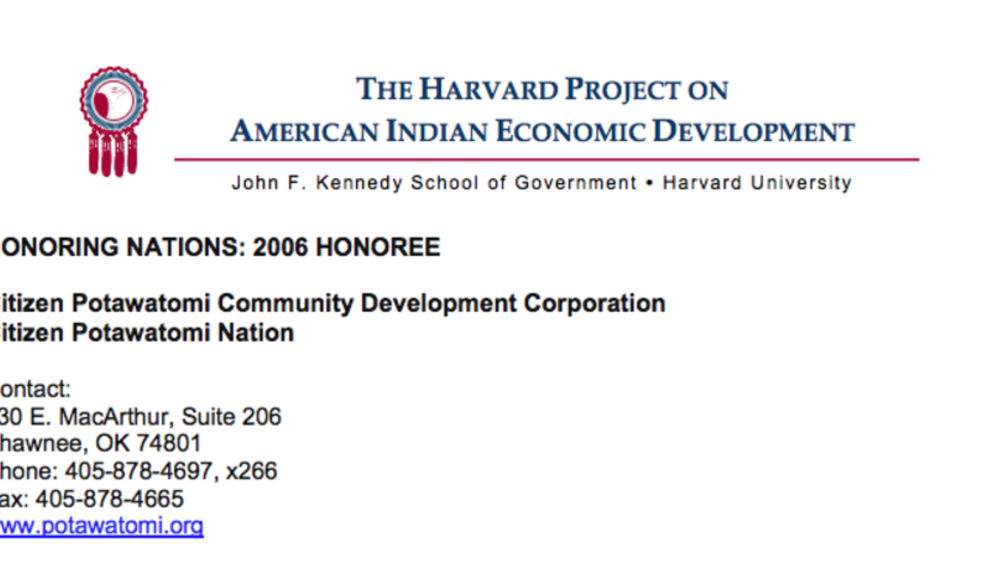
Citizen Potawatomi Community Development Corporation
Viewed as a one-stop shop for lending services, the Citizen Potawatomi Community Development Corporation provides holistic community development through business and employee loans, business development trainings, and financial literacy education. Demonstrating that the connection between…
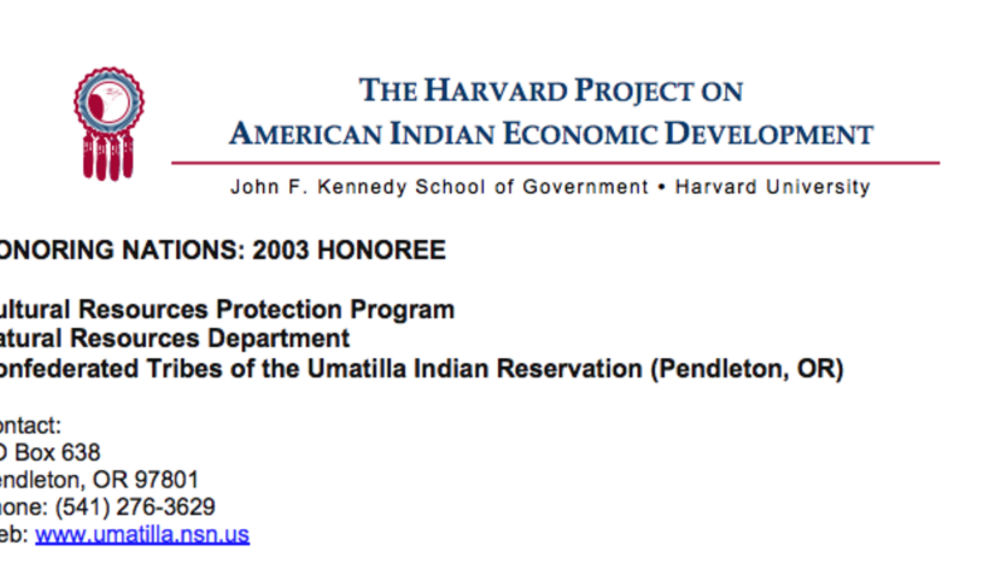
Umatilla Cultural Resources Protection Program
Frustrated by how tribal cultural resources were managed on tribal, federal, state, and private lands, the Tribes developed their own cultural resources protection program. The 15-year-old program is a leader in educating non-Indian agencies about pertinent laws and treaties, strengthening cultural…
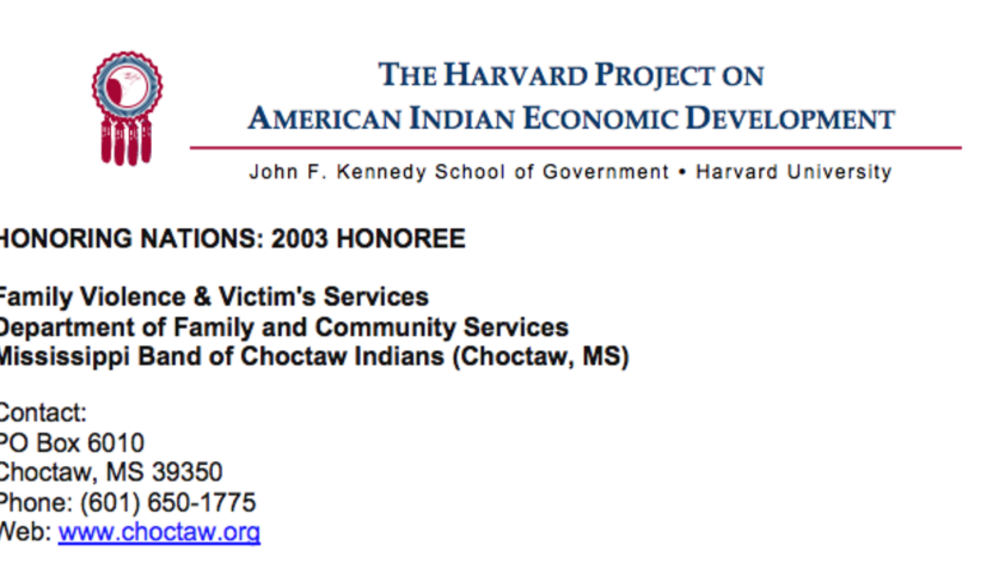
Mississippi Choctaw Family Violence & Victim's Services
Addressing the often-stigmatized issues of domestic violence, sexual assault, stalking, and elder abuse, the Family Violence and Victim’s Services (FVVS) provides comprehensive resources for victims such as access to legal services, counseling, and therapy. In addition, FVVS drafted a strict tribal…
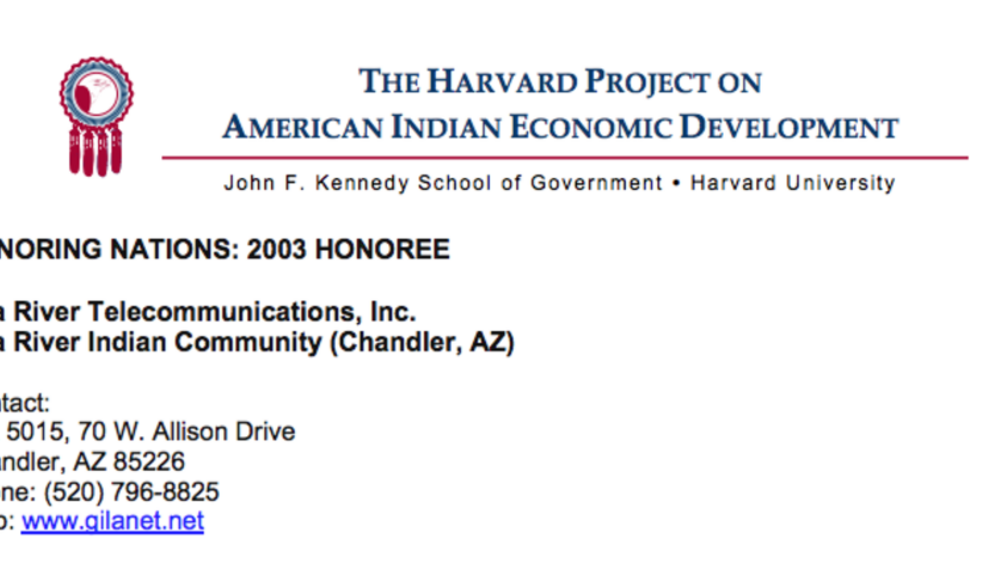
Gila River Telecommunications, Inc.
Recognizing the need for affordable and reliable telecommunications services, the Tribe founded Gila River Telecommunications, Inc. (GRTI) in 1988. A pioneer in telecommunications in Indian Country, GRTI offers affordable landline phone service, dial-up and DSL Internet service, and satellite…
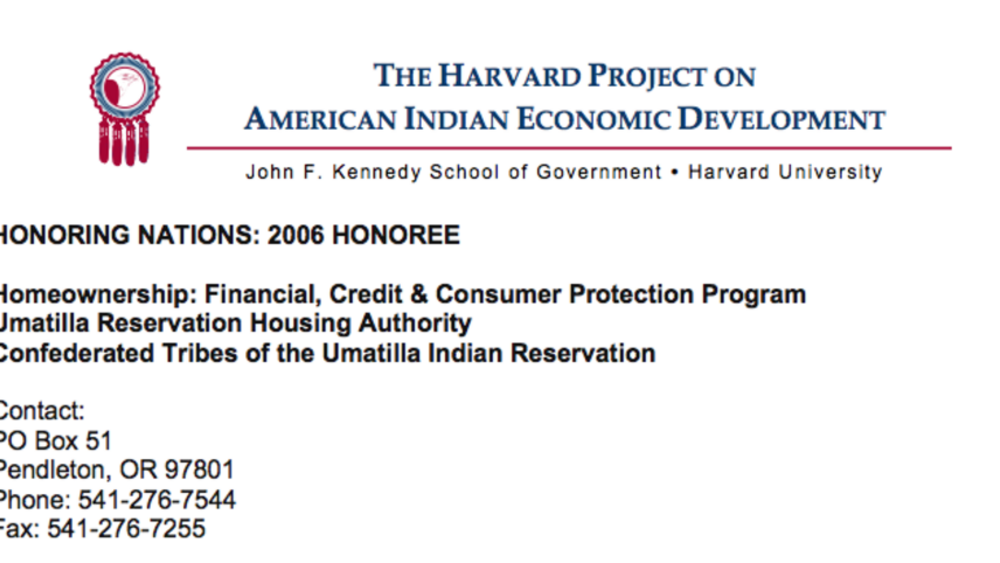
Umatilla Homeownership: Financial, Credit and Consumer Protection Program
Recognizing the necessary links between promoting a strong economy, maintaining positive cultural connections, and the ability to own a home, the Umatilla Housing Authority promotes the "Wapayatat" Homeownership: Financial, Credit and Consumer Protection Program. The seven-week course provides…
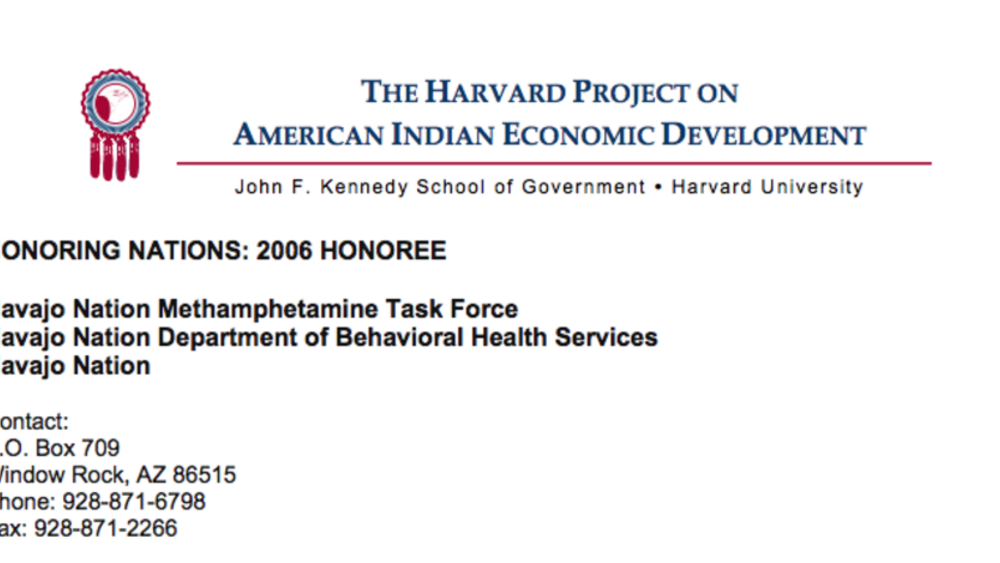
Navajo Methamphetamine Task Force
Taking a proactive stance on policy issues, options, and recommendations in the areas of prevention, treatment, and/or enforcement, the Methamphetamine Task Forces actively combat a tidal wave of destruction within their communities. Drawing upon education, community involvement, cultural…
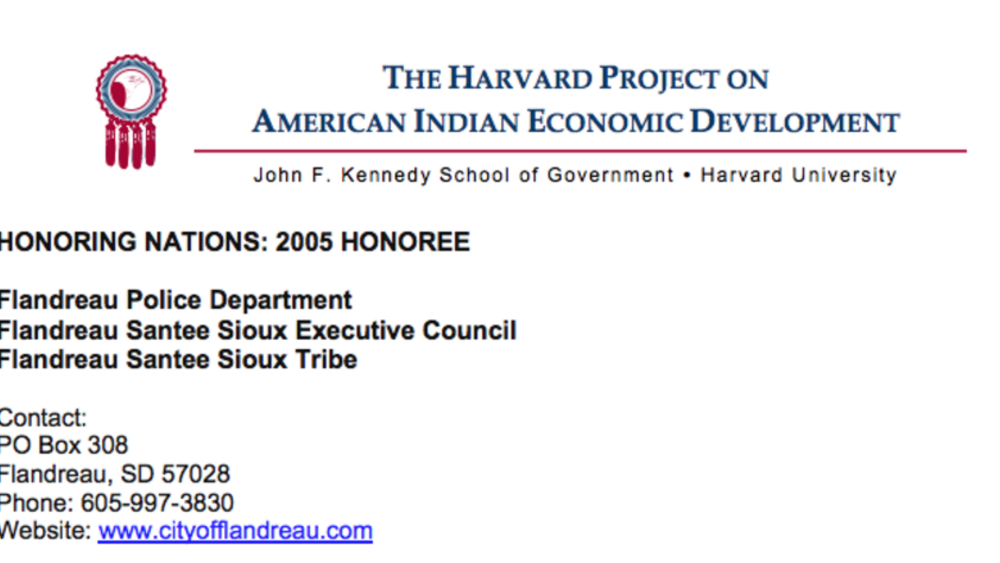
Flandreau Police Department
The Flandreau Santee Sioux Tribe’s lands are situated within Moody County and the City of Flandreau, South Dakota. This location presents the Nation with a particular challenge: How do you provide adequate and culturally sensitive public safety and law enforcement for your citizens in mixed…
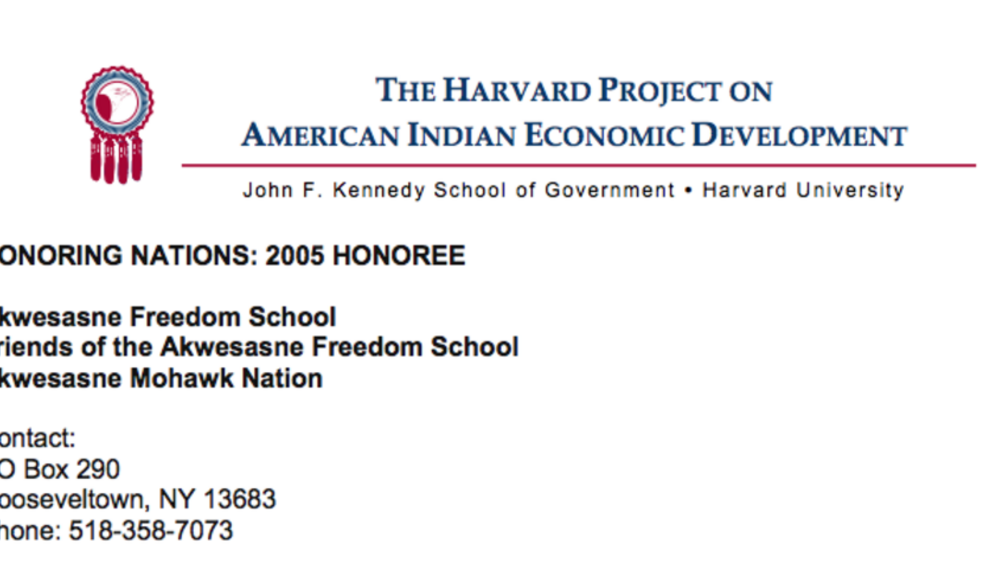
Akwesasne Freedom School
In 1979, the Akwesasne Freedom School took form out of the Mohawk struggle for self-determination and self-government. It is characterized by a deep commitment to the maintenance of Mohawk identity. Students in this pre-kindergarten through 8th-grade language immersion school begin and end each…
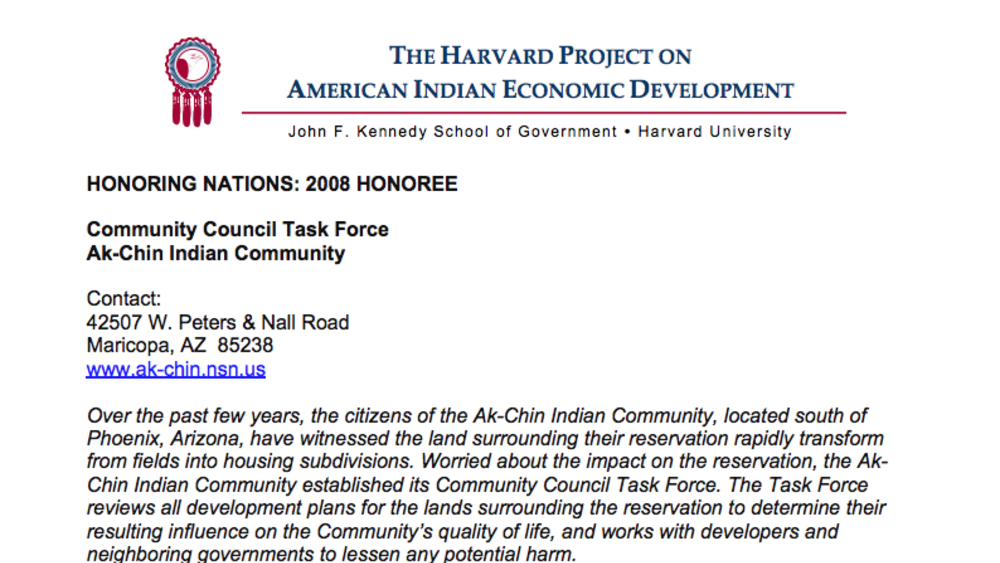
Ak-Chin Community Council Task Force
Over the past few years, the citizens of the Ak-Chin Indian Community, located south of Phoenix, Arizona, have witnessed the land surrounding their reservation rapidly transform from fields into housing subdivisions. Worried about the impact on the reservation, the Ak-Chin Indian Community…
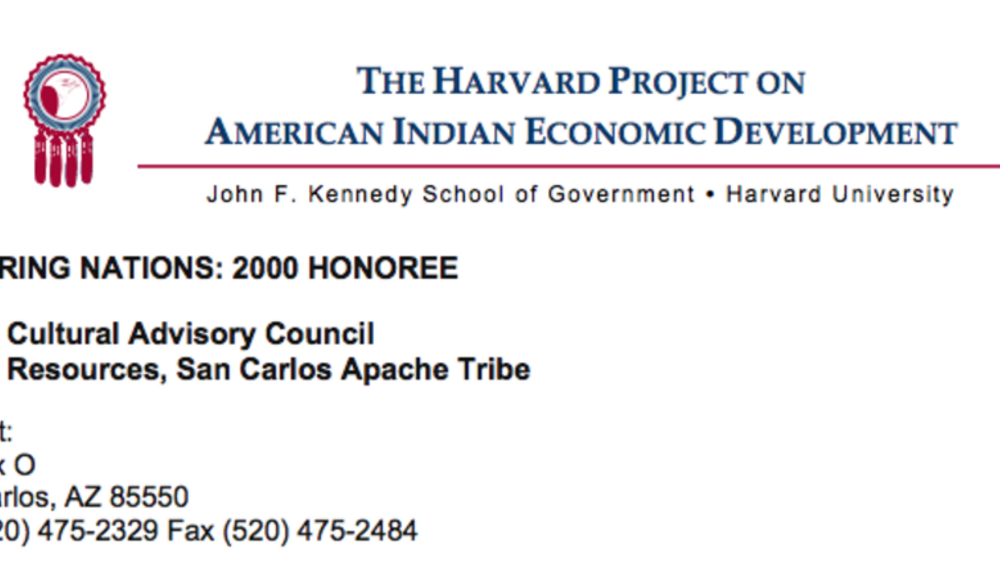
San Carlos Apache Elders Cultural Advisory Council
The Elders Cultural Advisory Council was formed by a resolution of the San Carlos Tribal Council in 1993 to advise on culturally related matters, to consult with off-reservation entities, and to administer and oversee cultural preservation activities. As a source of traditional wisdom, the Elders…
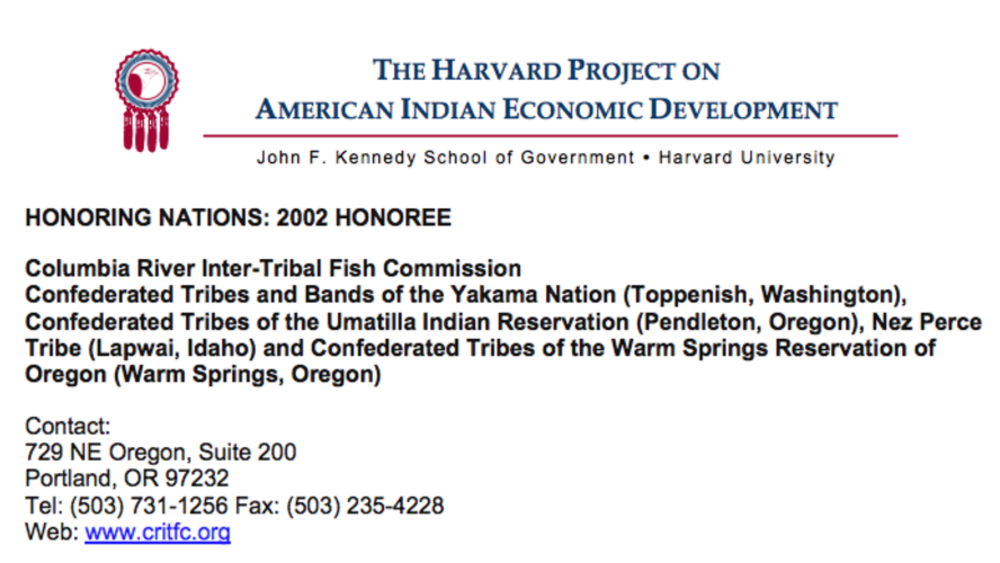
Columbia River Inter-Tribal Fish Commission
Charged with the overall management of its member tribes’ fisheries resources and advocating for the protection of treaty rights, the Columbia River Inter-Tribal Fish Commission’s (CRITFC) programs include fisheries enforcement, policy development and litigation support, fish marketing, and…
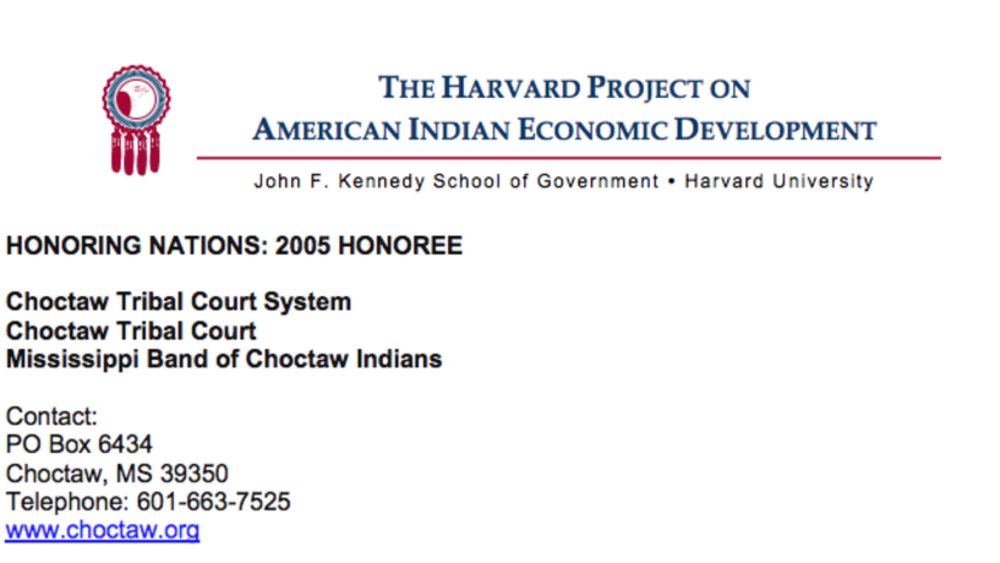
Choctaw Tribal Court System
Self-determination is the guiding principle behind all of the government initiatives undertaken by the Mississippi Band of Choctaw Indians. This nation has created a vibrant economy while investing resources into the preservation of Choctaw language and culture. At the heart of its success is its…
Pagination
- First page
- …
- 4
- 5
- 6
- …
- Last page
